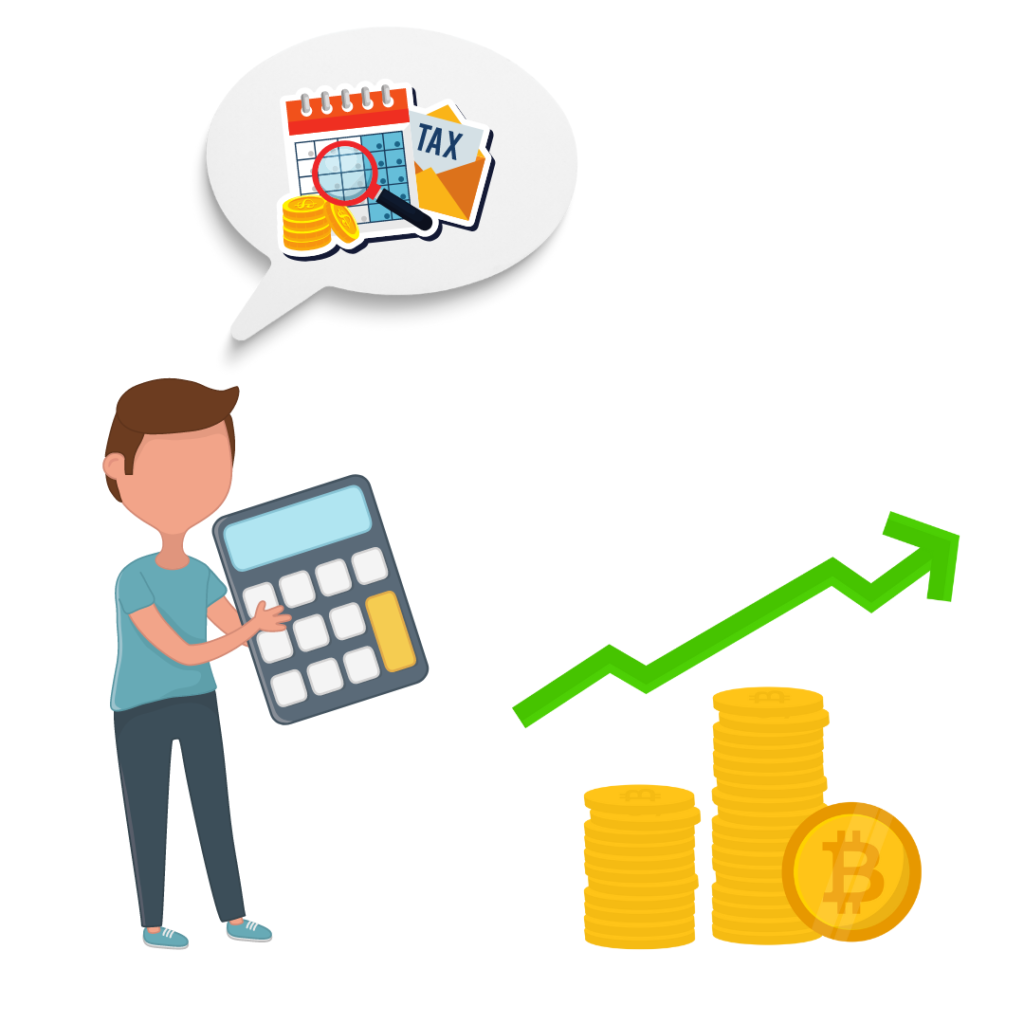Crypto Taxes in Sweden: The Complete Tax Guide
Does Sweden tax cryptocurrency? The answer is – yes. Crypto taxes in Sweden are as simple as it gets.
Capital gains on crypto are taxed under the fixed capital gain tax rate of 30%, while any income received in crypto is taxed at appropriate income tax rates.
While capital gains taxes are pretty straightforward, income taxes are relatively more complex in Sweden. In this guide, we’ll break down how crypto is taxed in Sweden, how to calculate and report your crypto taxes and potentially reduce your tax liability.
But before that, first, we must know Sweden’s position on cryptocurrency.
How Does the Swedish Tax Agency View Cryptocurrency?
Though the Sweden government hasn’t made their position on cryptocurrency official, they did clarify that they do not view or classify crypto as fiat currency, property or share.
But for tax purposes, the Swedish Tax Agency (STA) treats crypto as other assets. So, whatever tax rules apply to ‘other assets’ in Sweden will also apply to cryptocurrency.
How is Crypto Taxed in Sweden?

Crypto taxes in Sweden can be split into three categories – capital gain taxes, income taxes and interest income taxes.
Capital Gain Taxes
Whenever you sell, spend or swap crypto, in other words, dispose of it (exchanging crypto for fiat currency), you’ll trigger a capital gain taxable event. What that means is you’ll pay a fixed 30% capital gain tax rate on the realized gains of your crypto.
In case you incur a loss instead of a profit, you can use it to offset your gains. However, you can only use 70% of your losses to offset your gains.
Income Taxes
You’ll be liable to income tax rates on receiving crypto as income or a reward for any services or products you sell. This may include mining rewards, salary received as crypto, selling digital artworks for crypto, etc.
You’ll pay income tax rates on the fair market value (at the time of acquisition) of the crypto you received as income. But keep in mind that if you sell the received crypto in the future and realize a gain, you then must pay capital gain taxes.
Income tax rates in Sweden are made up of two components – national taxes and municipal taxes.
You’ll be exempted from national taxes if your total taxable income is less than 540,700 kr. But you still have to pay municipal tax rates on your income, which may vary based on where you live, but average around 32%.
If your total taxable income does exceed 540,700 kr, you’ll pay a 20% national tax rate and 32% municipal tax rate, totaling up to 52%.
Interest Income Taxes
All interest-bearing activities in Sweden, including the ones involving cryptocurrency, will attract interest income taxes. This may include income from staking rewards, liquidity pools, yield farming, lending crypto, etc.
The interest income tax rate is the same fixed capital gain tax rate – 30%. However, unlike capital gains, all losses incurred during these activities are fully deductible.
How to Calculate Crypto Taxes in Sweden

Calculating crypto taxes in Sweden is easy – just subtract the selling price (FMV) of the crypto you disposed of from its cost basis, or vice versa, to calculate the capital gain (or loss).
Cost Basis – FMV = Capital Gain
In Sweden, you must use the average cost basis method to calculate the cost basis of your crypto.
What is the average cost basis method?
To calculate the average cost basis of your crypto, you divide the total units of crypto you possess by their total acquisition cost. Once you get the cost basis for one crypto, you can use it to calculate the cost basis for however many cryptocurrencies you sold.
Total Units of Crypto you Posses/Total Acquisition Cost = Cost Basis
As for calculating income taxes, all you have to do is find out the fair market value of the received crypto (at the time of acquisition).
All this may sound overwhelming, especially if you’re an active crypto trader or investor.
Even though you can manually track all the transactions over the last year, calculating the cost basis of your cryptocurrencies, the gains, the losses and whatnot, it’s better to use a free crypto tax software like Bitcoin.Tax that automates all of these processes for you.
Crypto Taxable Events
The following are some of the most common crypto transactions you get involved in on a daily basis, along with their tax consequences.
Selling or Spending Crypto
Whenever you’re selling, spending or even swapping one crypto for another, you’re disposing of your asset, and that triggers a capital gain tax event.
So, you’ll pay capital gain tax rates on your realized gains during the selling or spending of your crypto.
Getting Paid in Crypto
If you’re getting paid in crypto for any services or products you may offer, you’ll be liable to income taxes. You’ll pay income tax rates on the FMV (at the time of acquisition) of the crypto received as income.
Mining Crypto
Mining rewards are treated the same way as getting paid in crypto for tax purposes. You’re essentially getting paid in rewards for your services, which is crypto mining. Therefore, you’ll pay income taxes.
Staking or Lending Rewards
As we discussed before, any reward received from an interest-bearing activity will attract interest income taxes.
Tax-Free Crypto Transactions
The following are some crypto transactions that have no tax consequences. In other words, tax-free crypto transactions.
Gifting Crypto
Gifting crypto and receiving crypto as a gift are both tax-free in Sweden.
Crypto Donations
Crypto donations are tax deductible in Sweden, but there are limitations. You can only deduct donations to charities identified by the Swedish Tax Agency, and you can only deduct 25% of the donated amount (or a maximum of 1,500 kr).
Airdrops & Hardforks
Airdrops and hard forks do not qualify as taxable events in Sweden. Hence, they are tax-free.
Buying and Holding Crypto
Buying and holding also don’t qualify as taxable events. Hence, buying and holding crypto in Sweden is tax-free.
Transferring Crypto Between Wallets
It’s only considered a disposal event if you exchange crypto for fiat currency. Since that’s not what you’re doing when transferring crypto from one wallet to another, there are no tax consequences. Hence, transferring crypto between wallets is tax-free.
How to Avoid Crypto Taxes in Sweden

Firstly, there’s no legal way to avoid crypto taxes in Sweden. Doing that can get you in jail, or you may have to pay hefty amounts of penalty, or both. Taking that risk is obviously not worth it. So, it’s better you pay your taxes accurately and honestly.
That said, there are tax-saving strategies existing within the legal framework of Sweden that you can utilize to reduce your tax liability.
Gifting crypto is one of them. You can gift crypto to your spouse or someone within your family to realize a gain without triggering a tax event (since gifting and receiving crypto gifts are tax-free in Sweden). So, you get to keep your crypto within the family while reducing your tax bill.
Tax loss harvesting is another popular strategy to save more taxes, where you sell the cryptocurrencies sitting at a loss to use it to offset your gains.
Other than that, you can always consult a tax professional who can help you customize a plan specific to your situation.
How to Report Crypto Taxes in Sweden
The financial year in Sweden starts on January 1 and ends on December 31. You must report all your crypto gains and earnings on Section D of the K4 tax form. That’s if you use paper forms. Instead, a better way to report your crypto taxes in Sweden is with this online portal.
Make sure you do your due diligence in accurately reporting and calculating all your gains and taxes. You can make the whole process incredibly easy by integrating your crypto wallets and exchanges with Bitcoin.Tax.